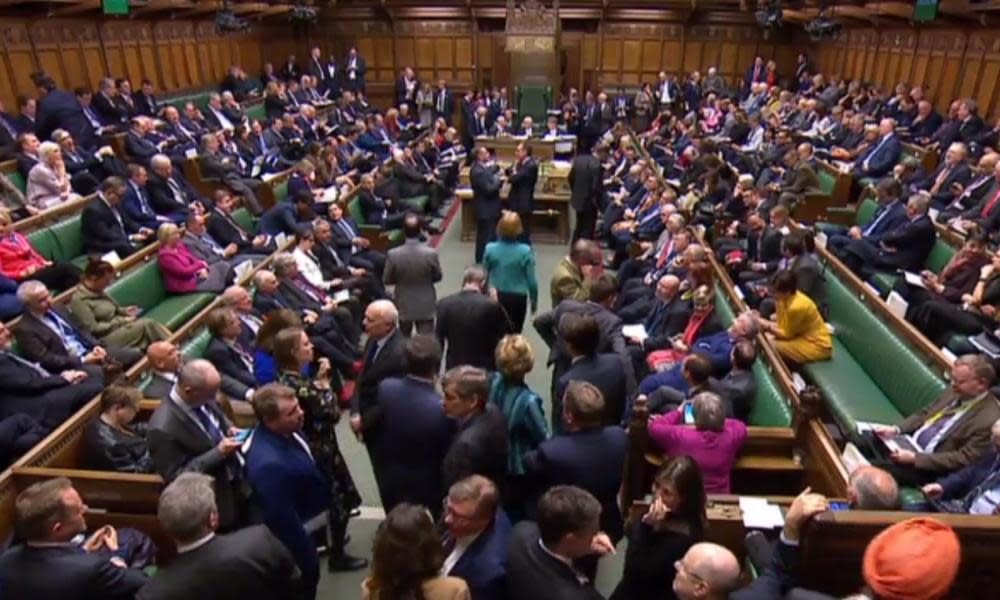What amendments aimed at halting no-deal Brexit will MPs be voting on?

The House of Commons will consider again on Thursday the somewhat dull-sounding Northern Ireland (executive formation) bill, a largely technical measure connected to the suspended devolved government, which has been used as a base for amendments on other subjects.
When it was first in the Commons last week, MPs overwhelmingly passed amendments extending the rights of same-sex marriage and abortion to Northern Ireland, the only places in the UK where they are not allowed.
Prorogation is the official term that marks the end of a parliamentary session. After being advised to do so by the prime minister, the Queen formally prorogues Parliament. This takes the form of an announcement in the House of Lords on the Queen's behalf. It is a speech, written by the government, which usually describes the bills which have been passed during that session, and summarises what has been achieved.
It means that all work on existing legislation stops, and MPs and Lords stop sitting. Prorogation also automatically kills any bills, early day motions or questions to ministers going through parliament.
Parliament can then be reopened a few days later with a fresh slate of legislation intentions, set out in a new Queen's Speech at the formal State Opening of Parliament.
They also passed – by a single vote – an amendment by the remain-minded Tory MP Dominic Grieve intended to make it more difficult for a future government to prorogue, or suspend, parliament to prevent MPs blocking a no-deal Brexit.
Grieve’s amendment would require a minister to report to the Commons every two weeks until December on the progress of talks on restoring the Northern Ireland assembly – though it remains unclear whether this could be done as a written report, meaning the chamber would not necessarily have to sit.
When the bill was considered by the Lords this week, a string of other amendments were tabled and two were voted on. Both were passed and will now be considered by the Commons. MPs have also tabled a new amendment. The three amendments are:
1. Seeking to prevent prorogation
Tabled by David Anderson, a former independent reviewer of terror legislation, with support from Labour and the Liberal Democrats, this amendment seeks to extend the scope of Grieve’s plan, and was passed in the Lords by a majority of 103 on Wednesday, with 13 Tory peers rebelling.
The amendment would ensure that the fortnightly reports demanded by Grieve’s amendments would have to be debated within five calendar days of being produced, thus necessitating that the Commons sits.
MPs will now decide on this toughened amendment in what is expected to be an extremely tight vote. There is speculation that some ministers could resign to back it.
2. Avoiding delays to introducing abortion
While the government has committed to introducing both abortion and equal marriage to Northern Ireland after last week’s votes, there has been speculation that changes over abortion could be delayed for some months. A government document on the abortion change has discussed the idea of consultations on the process, saying the regulations needed to make the change may not be ready until as late as the end of 2020, alarming campaign groups.
An amendment tabled by the Lib Dem peer Elizabeth Barker, Labour’s Alf Dubs and others stipulates that the change must be made no later than mid-January. It also calls for an immediate halt to police investigations or criminal cases against women in Northern Ireland for seeking or assisting with abortions.
The amendment was passed in the Lords by 182 votes to 37, gaining support from across the benches.
3. New Commons amendment on preventing prorogation
Tabled by a cross-party group of more than 20 MPs led by Labour’s Hilary Benn and the Conservatives’ Alistair Burt, this seeks to beef up the anti-prorogation measures yet further.
It specifies that if ministers cannot meet the obligation to update the Commons because it is prorogued or adjourned, parliament must meet on the day necessary to comply with the obligation, and for the following five weekdays.

 Yahoo News
Yahoo News 
